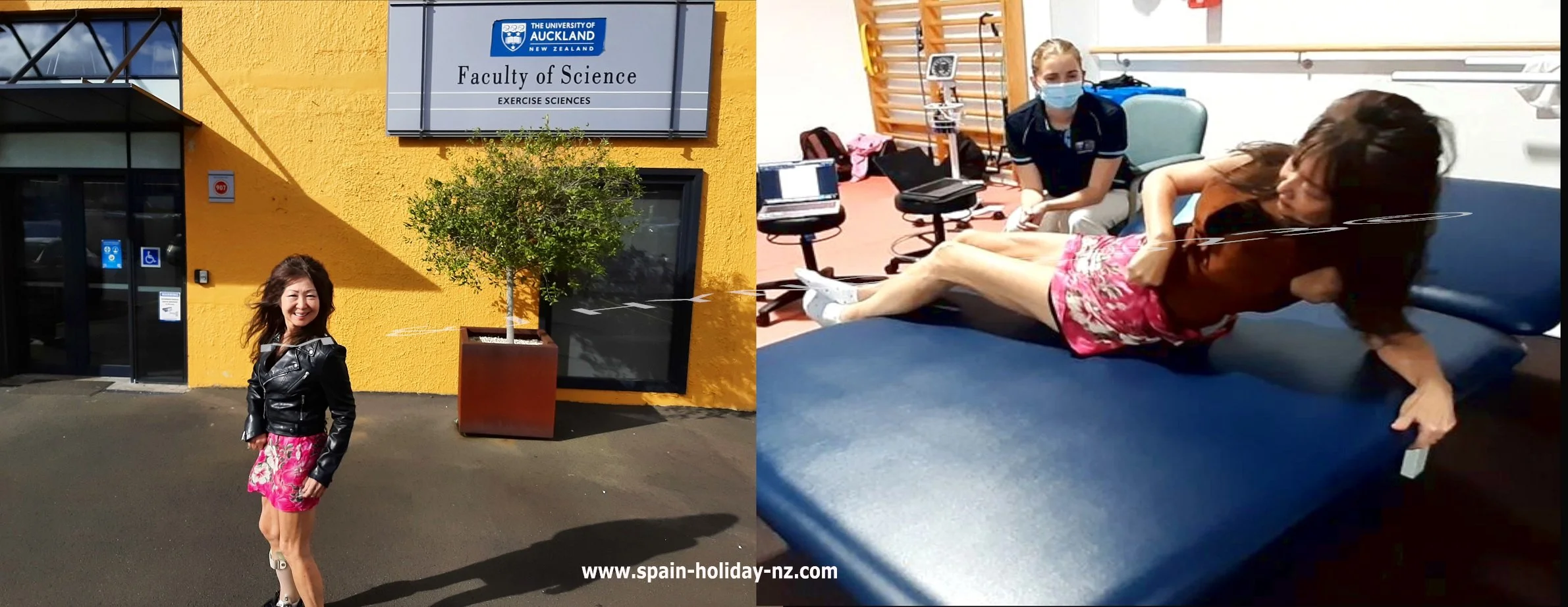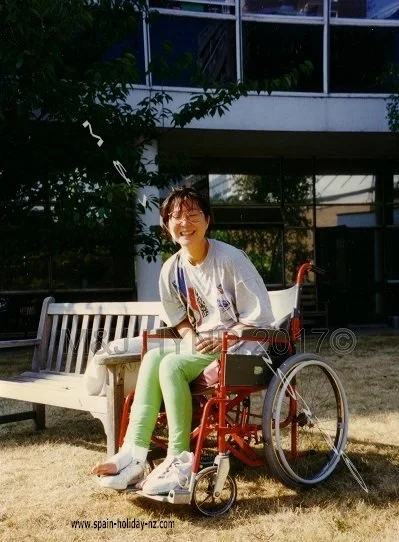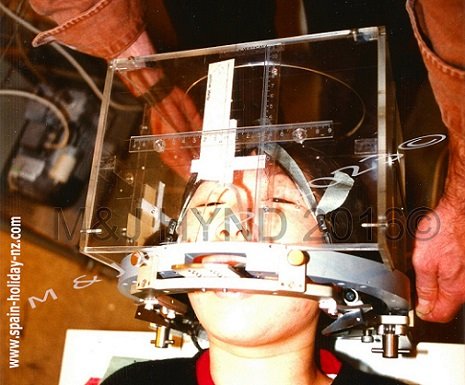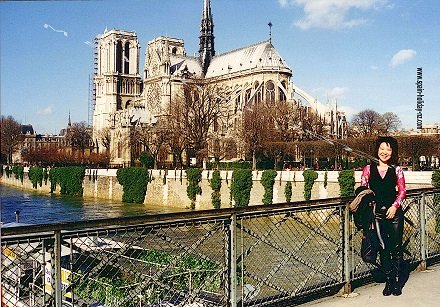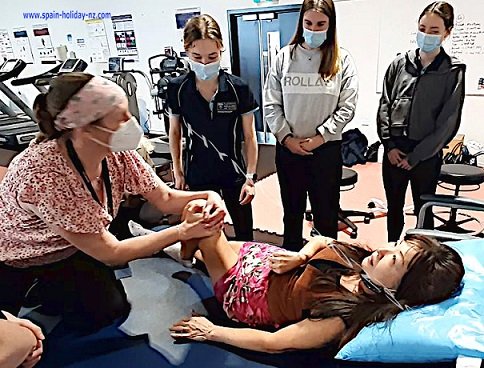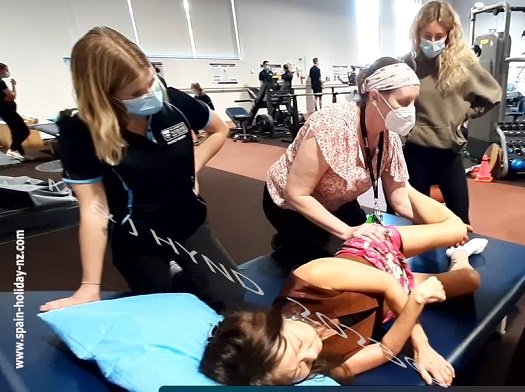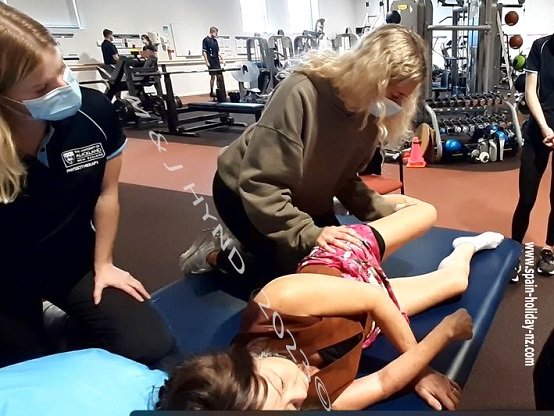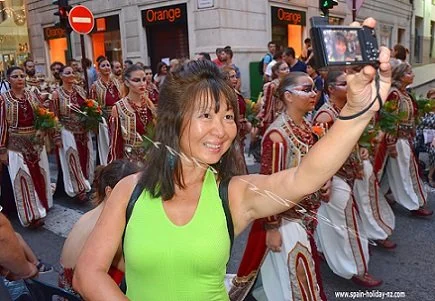UoA Physiotherapy Plinth Activity 2023
The University of Auckland (UoA) asked if I'd like to participate as training-subject for a new batch of Student-physios in 2023.
''…neurological physiotherapy course. I would like to bring in people with stroke to work with the students so that they can practice an interview and assessment as they learn so much more quickly working this way rather than practicing on each other. It would be about 2 hours in Newmarket. ..”
We arrived at the Newmarket campus with plenty of time to spare. This is my second visit at UoA's new campus, last year I volunteered for a similar exercise (University of Auckland in the 1980s; my alma-mater, Auckland NZ). The gym was bright, full of equipment just as before; a big space, reminiscent of the gym in London* hospital where I spent three months in 1995, after my massive AVM brain-haemorrhage/stroke (congenital –unbeknownst to me; have had the condition since birth).
*where my husband Murray and I were on our extended OE (overseas experience).
Background: I collapsed at work in London, UK, 1995 – ambulance rushed me to a local hospital - they lacked the expertise required to deal with such an extreme neurological case; much later, taken to the second hospital in central London. Neurosurgeons performed emergency, Open-brain surgery, which took 9 hours and saved my life, but there were catastrophic consequences - 7 to 8 hour delay from the time I fell unconscious (analyst-programmer in IT) when my colleagues called for ambulance aid,.. to surgery. [6 months later, another procedure: Linear accelerator Stereotactic radiosurgery for ArterioVenous malformations (AVM) to treat the remainder left within my brain.]
F.A.S.T. - the NZ-slogan for Stroke: Facial droop, Arm weakness, Speech difficulties or non-existent, Time to call emergency services. F.A.S.T. campaign and initiative, began life in the UK by a group of stroke physicians, ambulance personnel, and an emergency department physician in 1998 - the more likely brain damage could be reduced and a better outcome achieved. It can't be stressed enough, but was not thought of as yet, when I had my AVM-brain-haemorrhage stroke in 1995...
Didn't smoke; didn't drink to excess; relished in ballroom dancing, skied, exercised even running up & down stairways in my high heels every day instead of using lifts; travelled whenever there was opportunity: normal weekends to Brussels, or France. Easter and longer-breaks: further afield to world destinations: USA, Crete, Santorini, Egypt– what on earth could have happened to cause this?
Happy and lively one moment, .. when I woke up post-surgery, I found that: I couldn't: stand or walk; talk; read; write; remember - lying prone in a hospital bed, everything had to be done for me by nurses. I couldn't move at will anymore, right-side paralysed, in a wheelchair later on. Serious clonus issues, footdrop, sub-lux shoulder, severe aphasia; was right-handed, now had to learn to be a left-handed individual; sensory-loss: I couldn't feel what was happening on/to my rightside; and the list goes on.
Had have to Relearn Life from scratch (.. to stand was agonisingly-painful after sitting in a wheelchair) was only the beginning of the journey; I was 34. (see: STROKE, life after AVM article)
Reminiscing over, we got underway: the students are post-graduate, and this is the first time to practice on real people who've had strokes rather than practice on themselves, before clinical placements. Learning skills to become physiotherapists in a 2-year Masters of Physiotherapy course.
It was informative for me, and very instructive for the students - they rotated the roles and took turns to practise the steps; I was involved with 2 groups. The lecturer demonstrated the movements of the plinth activity. The correct way for the student to guide and support, holding the patient (me) firmly yet allowing me to try and do the activity, is the key to the exercise.
Post-AVM-stroke in 1995, I couldn't even turn in bed, so I had to sleep facing up each night; bedrails were put-up each night for my safety, in the unlikely event that if I accidently turned and fell to the ground, that would prevent it. My life had become, in a lightning-strike: zilch...: highs of living life to the fullest before; ... to utmost lows after my AVM-stroke.
My left side was unaffected, but to do anything the whole body needed to coalesce and work together – my right side was so extremely heavy after the stroke, I couldn't hold my body upright for too long, even when I was in a wheelchair later on; like an unbearable weight was suddenly put on me after the stroke; I continually slumped to one side...
Stand...you must be kidding me.., really? Muscles in my right side weren't driven by brain impulses, so now I had to try to will them to work – it was excruciatingly stressful to stand, even two or three seconds was too long in the legacy wooden standing-frame in hospital.
For a very long time (years in fact) I couldn't get out of bed without somebody's help, even at home. When I was discharged from hospital to go home after 3 months, Murray (my husband) had to go to work each day. As I couldn't get out-of-bed without help, every workday I had to get up around the same time as he did: very very early, wash+dress (which took an age) and sit in my wheelchair before he left.
I could only transfer from sitting in the wheelchair, to the bathroom for toilet-break & back to sit in the wheelchair, in our tiny first-floor flat in central London; I had severe footdrop issue, which didn't help matters; I couldn't speak, very little memory.. no home-help; also we were away from family: London where we were, versus NZ/Australia/Malaysia (I was born in Malaysia).
Back to the UoA participation: sitting up, lying down, turn to the right, to the left on a plinth. I am now able to recruit my muscles more, sit up and do more activities on the plinth. I was asked to attempt (with help of student therapists) - leg-raise, stretches.. Thankfully, was able to do a 'facsimile' of the exercise - to get some sort of copy-of-movement, is good I feel.
To 'walk' is automatic, what able-bodied persons do without much thought. Walk: on loose-sandy beaches, down to the waterline where one sinks in ever so slightly; polished surfaces or glass floors; skateboarders, scooters and cyclists careening very close: ... keep balance: change stance, side-step them, do whatever was called for in my pre-stroke days. Now, try, try... try again, countless thousands of times, it takes great effort, and changes, .. you may be quite surprised at the results.
I still have plenty of challenges – I'd put on a tremendous amount of weight, sitting in my wheelchair. When I was wheelchair-free: ...'keep moving' is my mantra in the home environment. As I'm not able to do conventional exercise, to shift or change positions is great, an activity to do more of.. Am one-handed, have gait+balance issues, footdrop, sub-luxed shoulder, etc. I'm improving yearly, perhaps minutely; mundane activities like going to the beach, or for going further afield: research well and motivate to myself to do more each year.
Student therapists practising exercises/activities on us Stroke-Survivor participants, also provided an illuminating session for me; one of them made a surprise comment : '' ..ohh, 'core exercises'..''? I had very little idea what that was. Not being able to feel much or see what I'm doing on my right side 'moving my body' was just something I tried to do... and hoped it was the correct movement. A challenge to know how to move, if you have great sensory impairments and/or loss – it is not automatic any more. On that pariticipation day for plinth activity, especially exercises aimed-at stretching out leg-muscles that perhaps haven't been in use for a long time.. - was so fantastic – thanks for very much for this opportunity.
Many thanks to:
Marie-Claire Smith PhD,
Co-lead Masters of Physiotherapy Practice Programme (MPhysioPrac)
Department of Exercise Sciences / Te Kura Mātai Kori Tinana,
Faculty of Science
University of Auckland
...also Best Wishes to the team of post-graduate Physiotherapy student therapists 2023.

